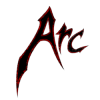OneNote alternative to make a knowledge base
Hey Privacy people,
I am looking for a OneNote alternative for all my campaign notes for my tabletop RPGs. I was looking at Obsidian.md as an option and wondering what their data collection is like?
Fot all my personal and private notes I use standard notes but the free version is not quite roboist enougj. I can’t afford to pay premium any time soon I need a free option I can use.
Any suggestions ?




Add comment